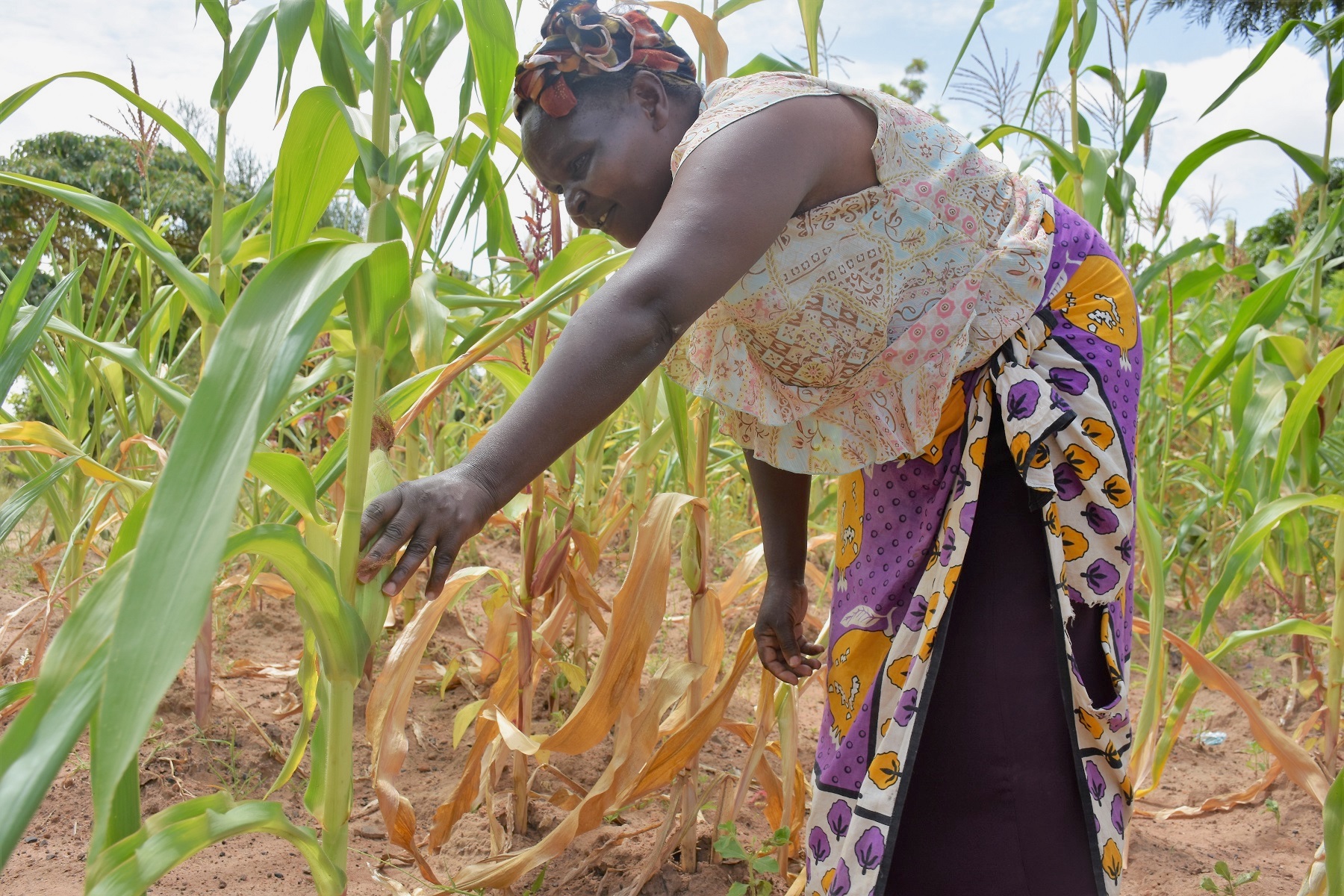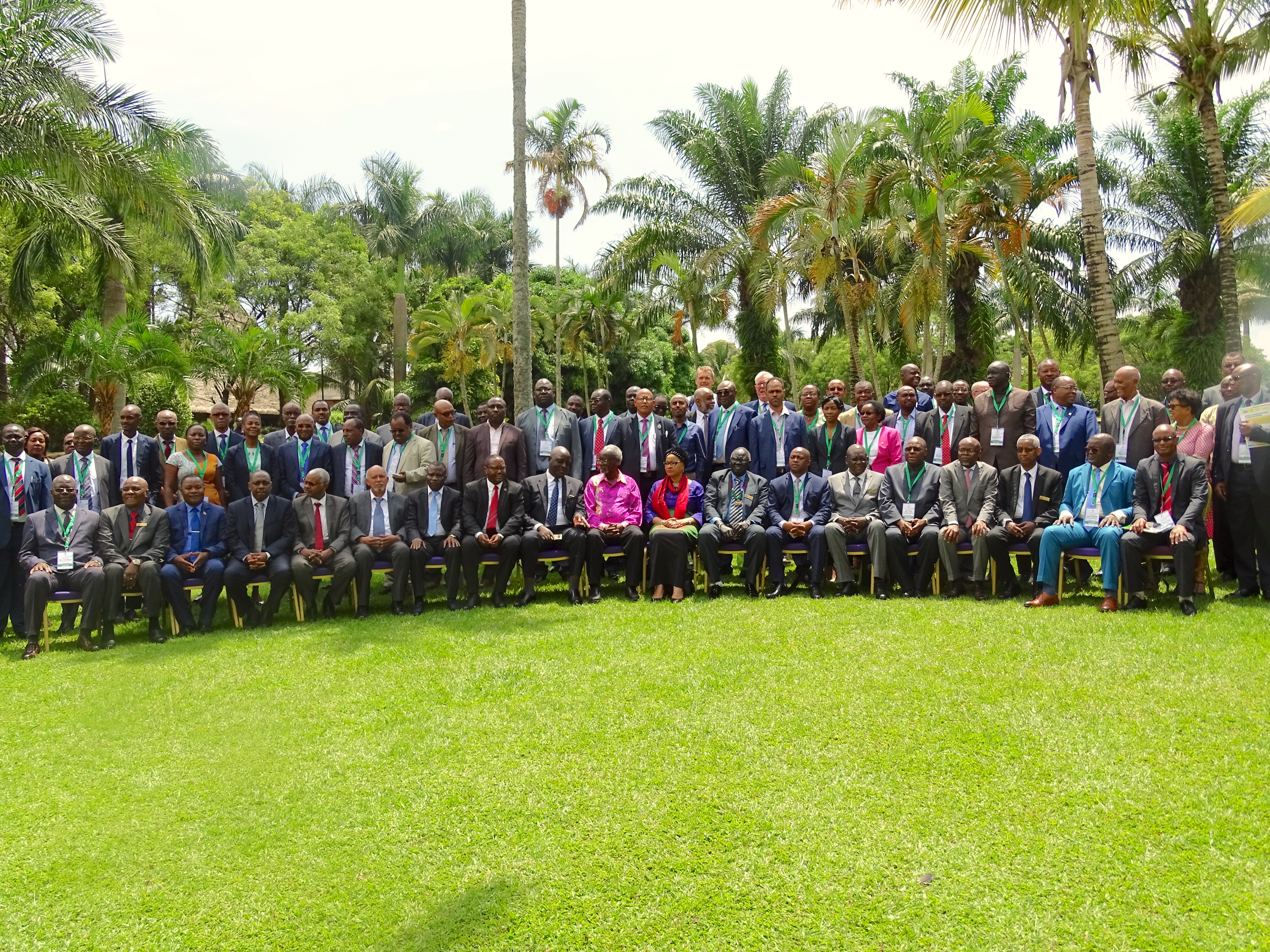Partnerships and how to increase impact were two of the key issues discussed by the Board of Trustees of the International Maize and Wheat Improvement Center (CIMMYT) during their meeting in Kenya in October 6-10, 2019. Management and strategy discussions were combined with field trips and interactions with CIMMYT researchers and partners. Board members visited the research stations in Kiboko and Naivasha, as well as two partner seed companies in Machakos and Nairobi.
“To ensure CIMMYT’s crop breeding research benefits smallholder farmers, it is important for us to better understand how partnerships between CIMMYT and seed companies work on the ground, to know how seeds move from our research stations to the farmers,” said Marianne Bänziger, CIMMYT’s deputy director general for research and partnership.
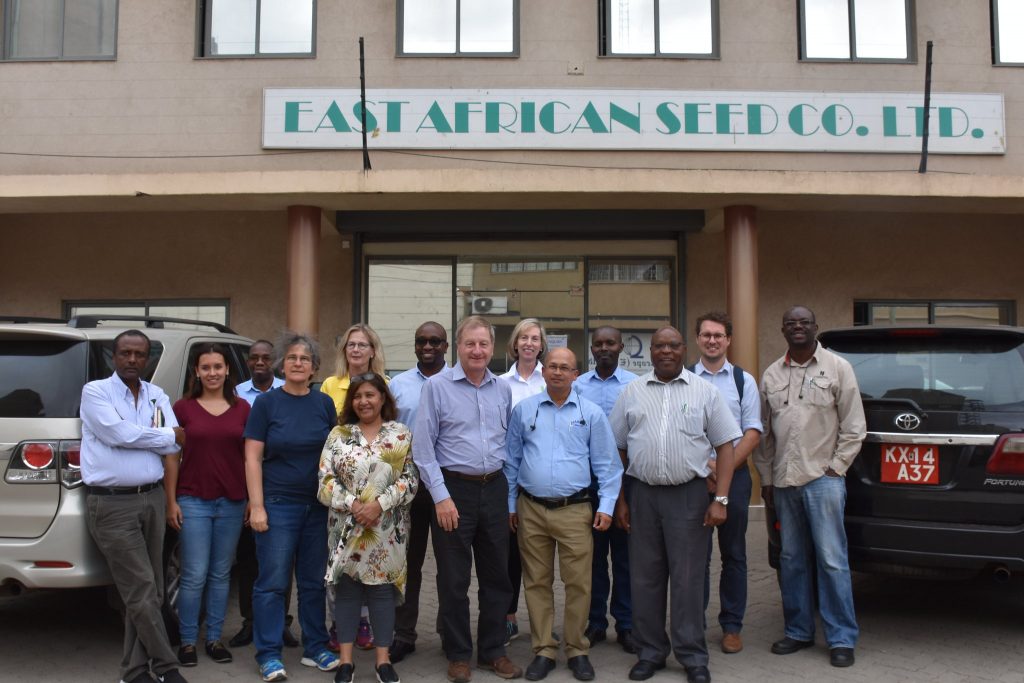
East African Seed, a family-owned seed business established in Nairobi in the 1970s, sells over 300 products, from maize and vegetable seeds to phytosanitary solutions. The company works through a large network of stockists and distributors across Burundi, the Democratic Republic of Congo, Kenya, Rwanda, South Sudan, Tanzania and Uganda.
Rogers Mugambi, chief business manager of East African Seed, underlined the successful partnership with CIMMYT, getting access to high-yielding disease-resistant germplasm and receiving technical support for the company’s breeding team. Mugambi highlighted CIMMYT’s contribution to contain the devastating maize lethal necrosis (MLN) outbreak since 2011. Most commercial varieties on the market fared badly against this new viral disease, but in 2020 East African Seed will launch two new MLN-tolerant varieties on the market thanks to CIMMYT’s breeding work.
Dryland Seed, another partner seed company, was established in 2005 in Kenya’s Machakos County. It commercializes the drought-tolerant SAWA maize hybrid, based on CIMMYT lines. Featured recently on Bill Gates’s blog, this hybrid is a success among farmers, thanks to earliness, nitrogen use efficiency and good yield potential in water-stressed regions. Dryland Seed’s production grew from 25 to 500 tons of seed per year, reaching out 42,000 farmers a year.
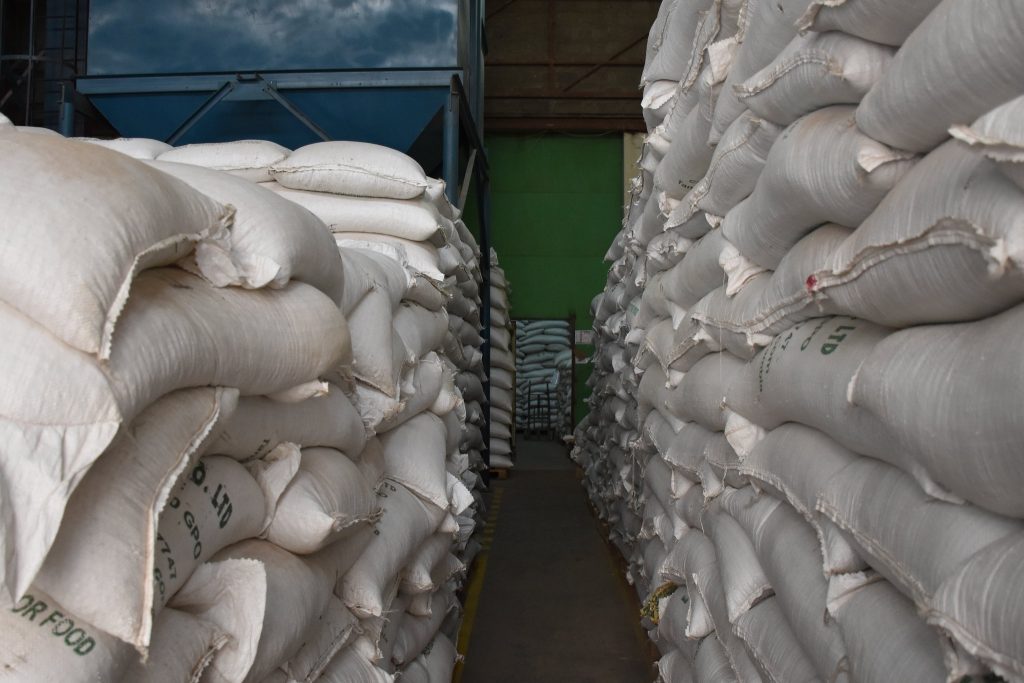
Keeping seeds in business
When asked about the uniqueness of East African Seed, Mugambi highlighted trust and consistency in quality. They nurture their agrodealer network by investing in extension services and organizing evening meetings with stockists to discuss how to farm and be profitable. “Knowing and supporting the agrodealers selling your products is crucial, to make sure the stockists sell the right seeds and inputs, and store them well,” Mugambi explained.
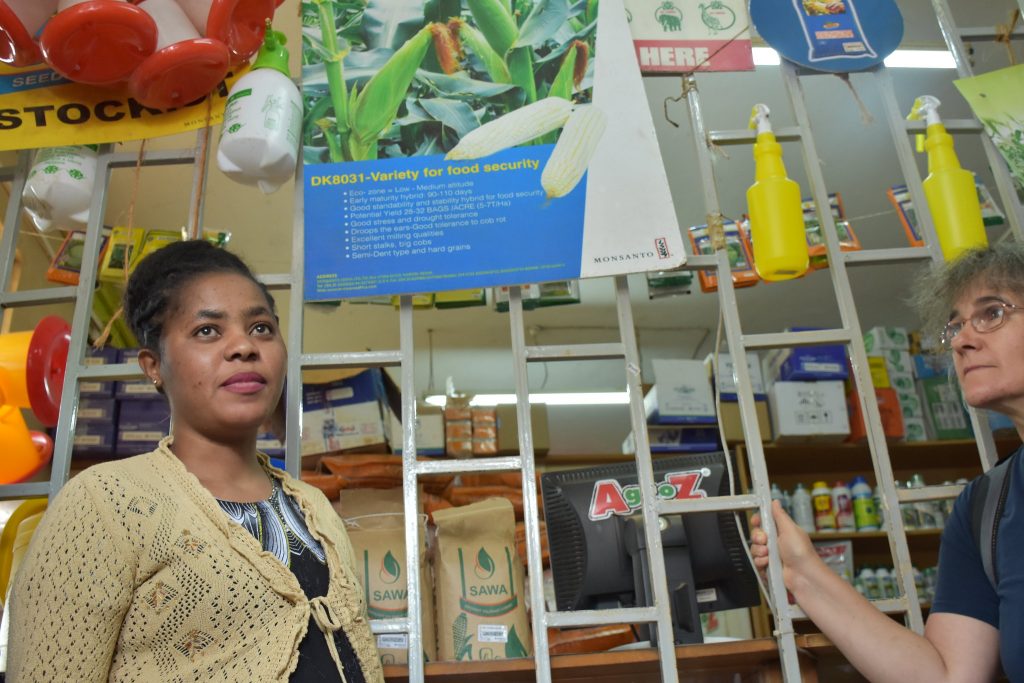
“Many seed companies could learn from you. Quality control is crucial for any seed business as you sell genetics and any crop failure at farm level will jeopardize farmers’ trust in the company’ seeds,” said Bill Angus, CIMMYT Board member.
Ngila Kimotho, managing director of Dryland Seed, pointed out the financial challenges for a small local seed company to grow in this risky but important agribusiness. The company has to pay out-growers, sometimes face default payment by some agrodealers, while low-interest credit offers are scarce as “banks and microfinance institutions target short-term reliable businesses, not climate-risky rainfed farming,” Kimotho explained. Combining drought-tolerant crops with insurance products could lower business risks for banks.
Bringing top-notch research to farmers
“I am worried about the mutating stem rust which seems to break down the resistance of some popular wheat varieties,” stressed Joseph Nalang’u, a farmer in Narok with 600 acres dedicated to wheat and 100 to maize. “The unpredictable weather is another major concern. When I started farming, we knew exactly when the planting season would start, and this helped us in our planning. That is no longer the case.”
African farmers need agricultural research. A research that is responsive to develop rapidly scalable and affordable solutions against numerous emerging pests and diseases like wheat rusts, MLN or fall armyworm. They need advice on how to adapt to unpredictable climate.
While visiting the MLN Quarantine and Screening Facility in Naivasha, CIMMYT’s Board members discussed research priorities and delivery pathways with farmers, seed and input companies, and representatives of Kenya Agricultural and Livestock Research Organization (KALRO), Kenya Plant Health Inspectorate Service (KEPHIS) and the Ministry of Agriculture.
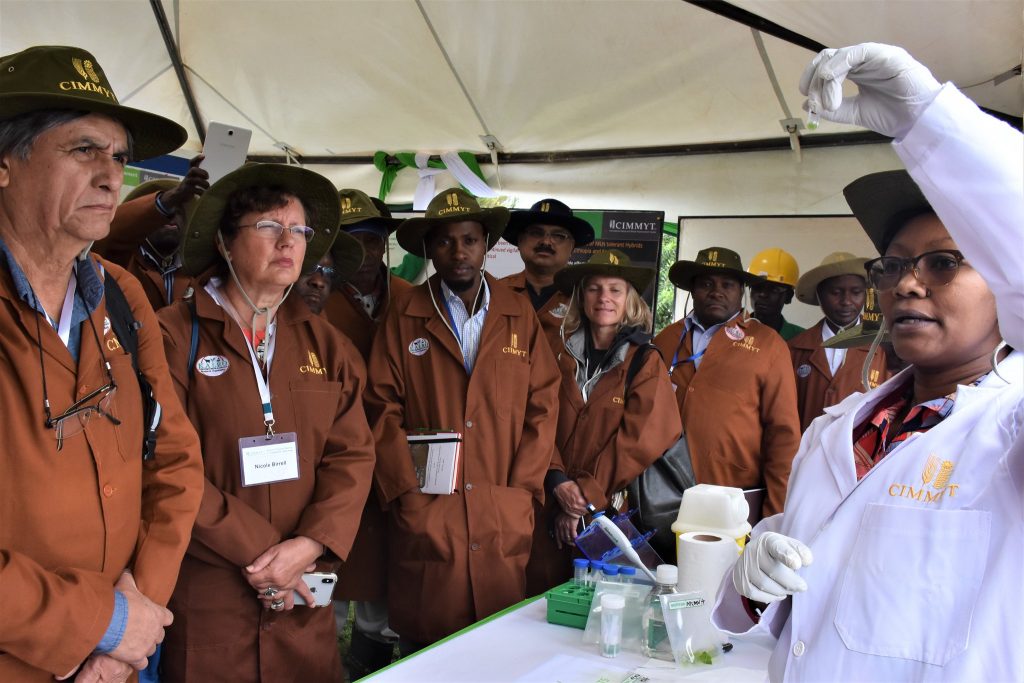
“When you visit Naivasha MLN research facility or Njoro wheat rust phenotyping platform, both co-managed by CIMMYT and KALRO, you see a partnership that works very well,” said Zachary Kinyua, the assistant director for crop health research at KALRO. “These facilities are open to public-private collaboration, they generate important public goods for farmers, large and small.”
“If we develop or co-develop wonderful technologies but they don’t reach the farmers, that would be a fun and wonderful experience but with no impact,” said Kevin Pixley, CIMMYT’s director of the Genetic Resources program. “We depend on partners in the national agricultural research systems, seed companies and other private and public partners to realize the desired impact.”
“It is always so inspiring to see on the ground the results of years of research, to hear some of our partners talking about the real impact this research makes. The multiplier effect of what we do never ceases to amaze me,” expressed Nicole Birell, chair of CIMMYT’s Board of Trustees.
Cover image: CIMMYT board members and staff visited Riziki Farm Supplies, one of the agrodealers in Machakos which sells SAWA hybrid maize. (Photo: Jerome Bossuet/CIMMYT)
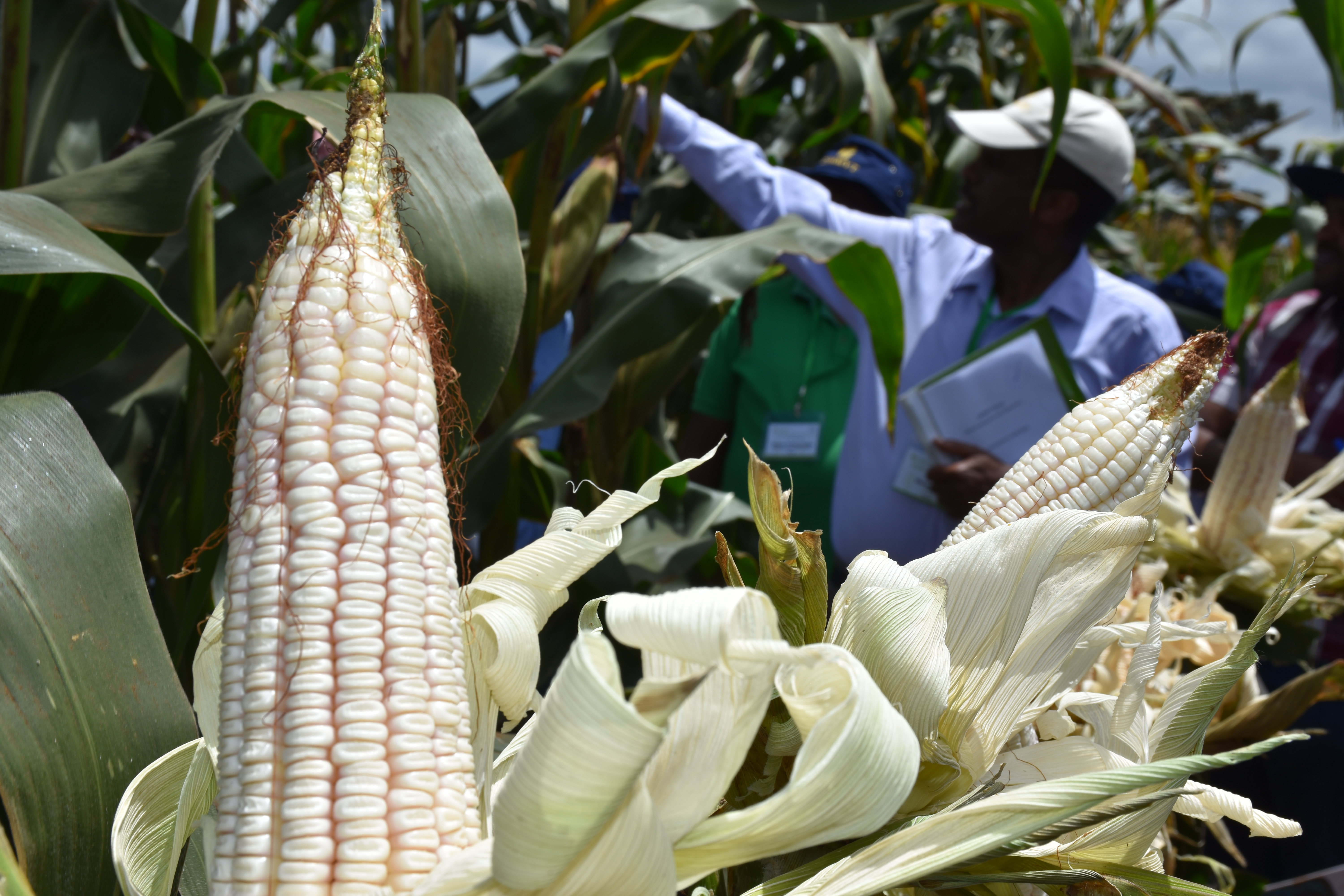
 Nutrition, health and food security
Nutrition, health and food security 